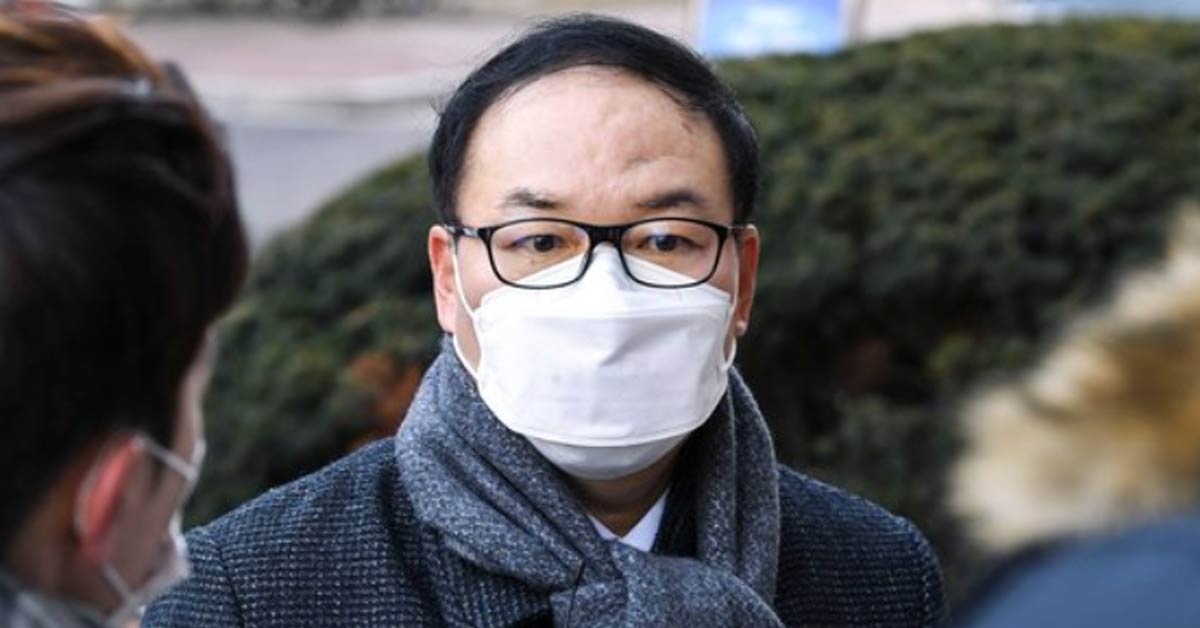
On the morning of the morning of the 15th, when the 2nd date of the Prosecutors’ Disciplinary Committee of the Ministry of Justice against Prosecutor General Yoon Seok-yeol, Jung Han-jung, the head of the disciplinary committee, enters the government office of the Ministry of Justice in Gwacheon City, answering questions from reporters. Reporter Woo Sang-jo
Jeong Han-jung, a professor at the Graduate School of Law of Hankuk University of Foreign Studies, who participated in the decision of Prosecutor General Yoon Seok-yeol’s “two months of honesty” as the acting chairman of the disciplinary committee, said “severe regret” to the court’s decision to return President Yoon to his office.
Professor Jeong said on Facebook on the 26th, “From the standpoint of lectures on legal ethics, this judiciary was very lacking in understanding of legal ethics.”
Earlier, the Seoul Administrative Court’s judicial division (deputy judge Hong Soon-wook) said on the 24th that four or more members of the enrolled member (7 members) must be present in order to vote against it. Said.
In response, Professor Jeong refuted that when deciding to evade the disciplinary committee, the number of attending members should be viewed as four instead of three.
Professor Jeong said, “When there is an application for challenge, Article 17 Paragraph 4 of the Prosecutors and Discipline Act makes a decision on whether or not to challenge the objection by the majority attendance of the enrolled members and the approval of the majority of the attending members. In this case, the person who has received an application for challenge cannot participate in the resolution. It is prescribed.”
“If this is interpreted as the wording, it should be interpreted that the person who has been challenged can attend the process of challenge, but should not participate in the resolution.” After the decision. In other words, 4 out of 7 enrolled members attended the evasion deliberation, and a majority of them 3 voted against it.”
Professor Jeong said, “The Supreme Court precedent cited by the court is that if the person who has been challenged has participated in the decision, the decision to challenge is invalid even if the quorum of the decision is satisfied, excluding that person. Is nowhere, and rather, the purpose of seeing the resolution and attendance differently is buried everywhere. The disciplinary procedure is an administrative procedure and its special provisions are the Prosecutors’ Discipline Act, so it must be interpreted in the Prosecutor’s Disciplinary Act.”
Prof. Jeong also pointed out that “the understanding of legal ethics was very lacking” in relation to the judgment of the court over the violation of President Yoon’s political neutrality.
Earlier, the judiciary said that it is difficult to conclude that it is difficult to conclude that it is difficult to conclude that President Yoon’s remarks “service for our society and the people after retirement” as an indication of political activities, and that there is a need for additional hearing.
Professor Jeong emphasized that “the standard of legal ethics is that not only inappropriate behaviors, but also such suspicious behaviors should not be taken,” and emphasized that “the code of ethics for judges has the purpose of stipulating that acts that are suspected of fairness should be avoided.”
He said, “Although there is no provision for’suspicious behavior’ in the code of ethics for prosecutors, this code can be taken into account when interpreting and applying impairment of dignity.”
Professor Jeong said, “This court was very inadequate in that it applied and interpreted the rules of civil and criminal proceedings applied to the general public to the disciplinary proceedings targeting members of the administrative organization unconsciously.”
Reporter Jeong Hye-jeong [email protected]
